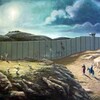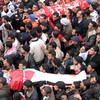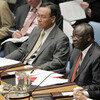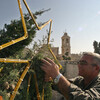
Turning the page, again
3 January 2006
Under a traditional leadership, with a stagnated political environment of internal hegemony and external military occupation, elections have been used over the years to entrench the already entrenched polity. Add to this the multi-pronged foreign interventions into Palestinian society � politically, economically, and socially � and elections have become watered down to the point where they are no longer enough of a force to turn the pages of history. Our future can only be shaped by our own hands. Are we ready, not only to turn the page, but to rip out and then rewrite the last chapter of the chronicle that has imprisoned us in occupation like never before?! Read more about Turning the page, again








